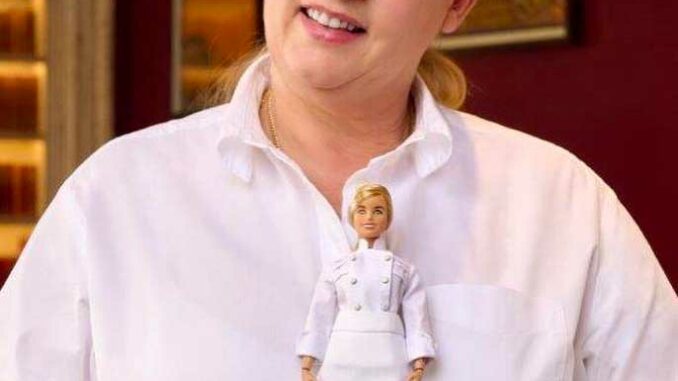
An intimate portrait of Hélène Darroze, her journey in French cuisine, her regional inspirations, and her impact on French gastronomy and cooking culture.
Born into a dynasty of chefs in southwest France, Hélène Darroze has become one of the defining voices of contemporary French cuisine. With Michelin stars on both sides of the Channel and a culinary philosophy deeply rooted in terroir, she blends tradition and innovation with rare finesse. In this profile, we explore her background, her signature dishes and influences, her role as a female pioneer in haute cuisine, and how her work encapsulates the wider culture of French gastronomy, regional identity, and evolving trends in French cooking and food culture.
The Roots: Family, Land, and the Birth of Passion
Hélène Darroze was born on February 23, 1967, in Mont-de-Marsan, in the Landes department of southwestern France, the fourth generation in a family of restaurateurs. Her great-grandfather opened L’Auberge Le Relais in Villeneuve-de-Marsan in 1895; it passed through her grandparents and then to her father, Francis Darroze, who ran and refined it over decades. She grew up immersed in the rhythms of a kitchen, the scent of markets, the cadence of menus planned around local harvests.
Although always surrounded by ingredients and culinary life, Darroze initially followed a more conventional route: she studied business and graduated from BEM Management School in Bordeaux (now KEDGE Business School). After university, she took a job in the administrative offices of Alain Ducasse’s Le Louis XV in Monaco. Ducasse, recognizing her latent drive, encouraged her to move from the back office into the kitchen. Under his tutelage, she spent time in both spheres, absorbing the dueling demands of operations and artistry.
Darroze returned to her familial roots in the mid-1990s, helping run the restaurant alongside her father. But as financial pressures mounted and the family enterprise closed in 1999, she struck out on her own in Paris, opening a restaurant under her name. Within two years she had earned a Michelin star (2001), followed by a second in 2003. Her Paris restaurant later evolved into Marsan par Hélène Darroze, now recognized with two Michelin stars.
In 2008 she accepted the role of head chef at The Connaught in London, transforming the hotel’s gastronomy and ultimately earning three Michelin stars there, while continuing to divide her time between France and the UK. A third establishment, Hélène Darroze à Villa La Coste in Provence, later secured a star, bringing her total count to six Michelin stars across her restaurants.
Darroze’s journey is emblematic of how regional specialties and terroir can thrive in international settings: she remains anchored to the Landes, Bas-Armagnac, duck, foie gras, wild mushrooms, and gentle but assured reinterpretation of southwestern French staples.
Philosophy & Influences: From Landes to the World
Darroze’s culinary DNA is inseparable from the regional identity of Gascony and the broader southwest of France. She prizes the products of terroir—duck, foie gras, game, truffles, regional vegetables—and works closely with discriminating producers. Her mother and grandmothers played crucial roles early on, teaching her to sense ingredients, to understand modest elements, and to respect tradition.
Her formative years with Alain Ducasse provided structure: rigorous technique, disciplined restraint, a reverence for simplicity, and an insistence on letting premium ingredients speak. But Darroze never became a strict classicist. She feels deeply curious about global cuisines—Vietnamese, Japanese, and Southeast Asian flavors, for example—and incorporates spices, textures, and techniques from abroad in measured, harmonizing doses.
Her style is often described as auteur cookery—not simply southwestern cooking in a box, but a personal voice built on roots and openness. She strives to evoke memory, to provoke emotion, and to let each dish be both precise and expressive. In London, she has adapted to local supply chains while keeping her signature Espelette pepper, her eggs, her heritage poultry (or close equivalents), and a sense of terroir, even when sourcing new producers.
Beyond cooking, Darroze has used her platform to support young chefs, advance sustainable sourcing, and engage in social causes, like her founding of “La Bonne Étoile,” which helps underprivileged children in Vietnam, a country where she later adopted her two daughters. Her presence on television (she has served for many seasons as a judge on Top Chef) further amplifies her influence, bringing French gastronomic values into popular culture.
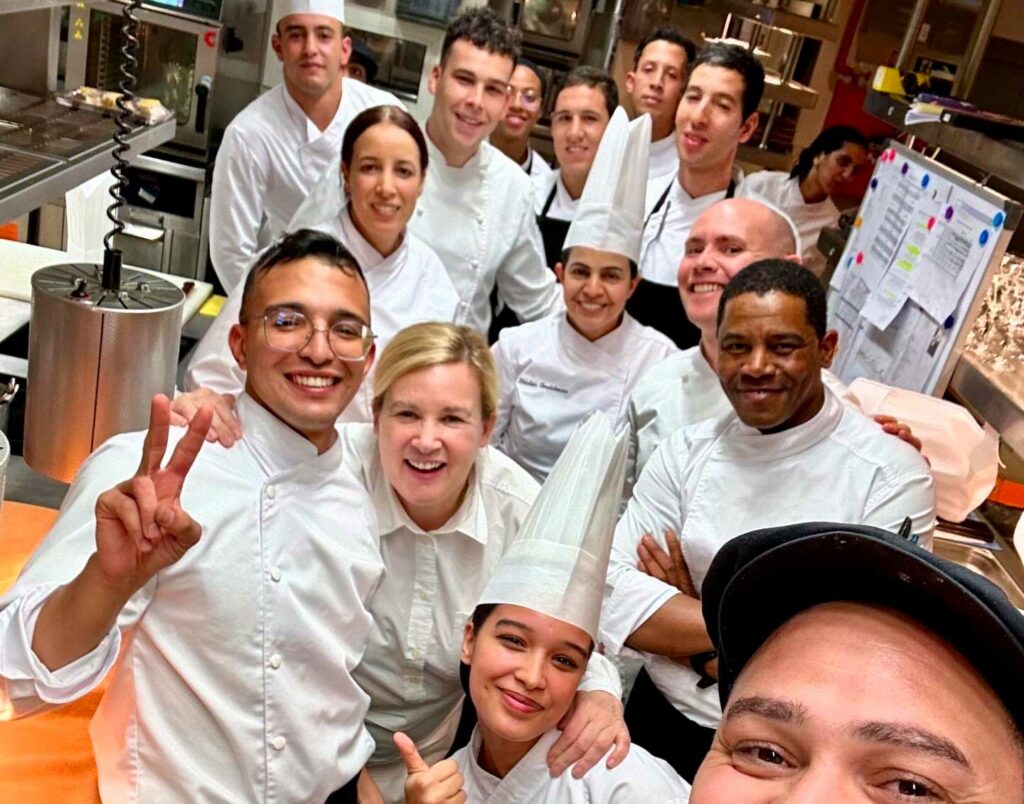
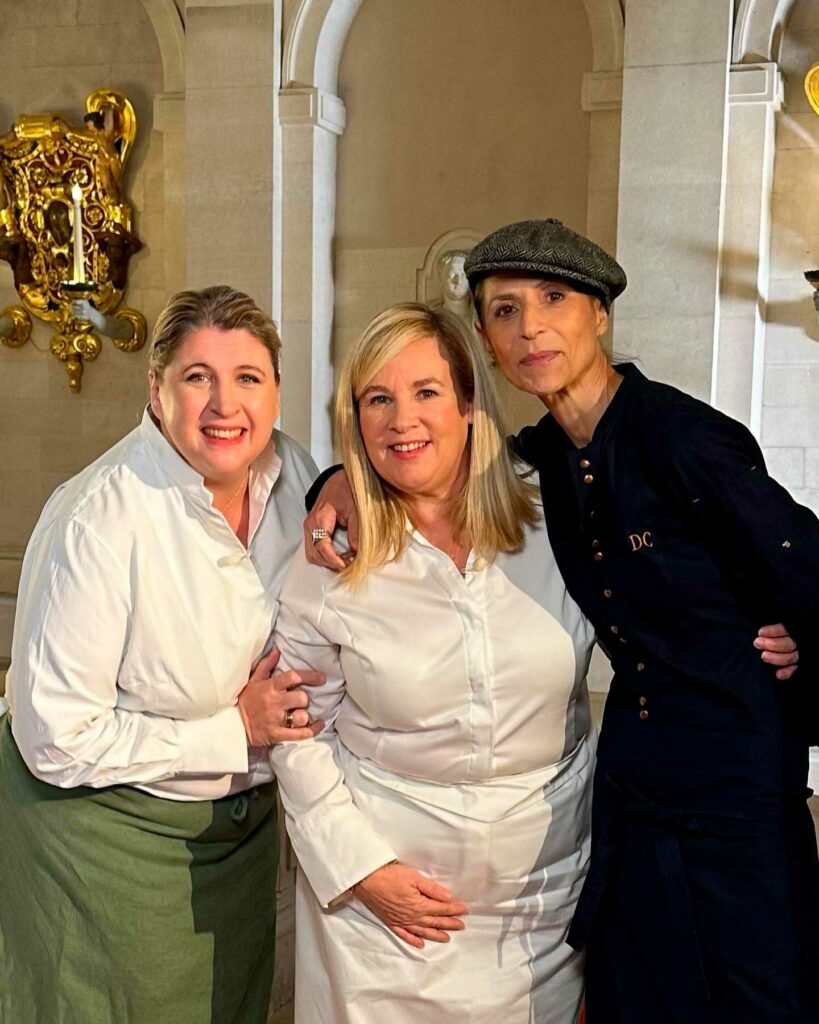
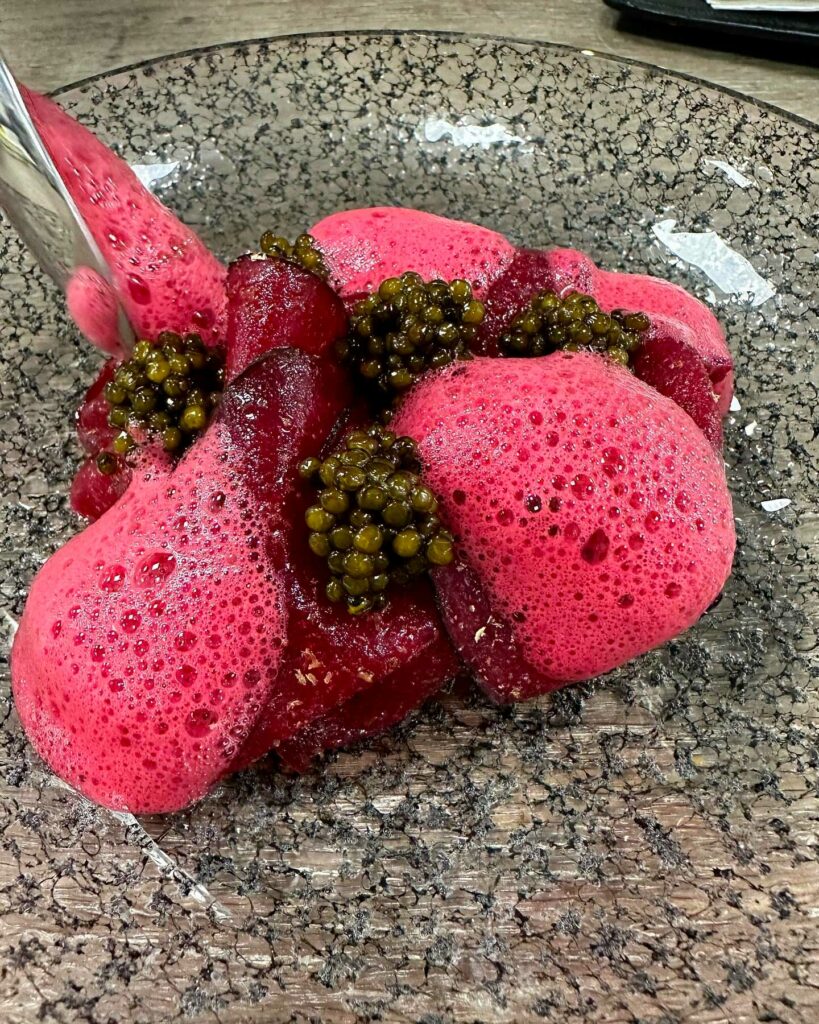
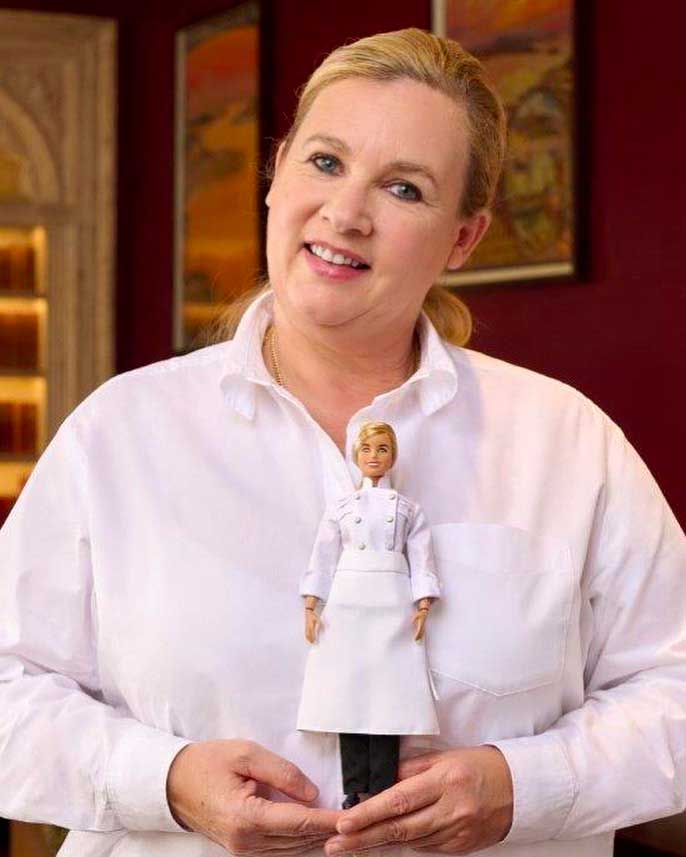
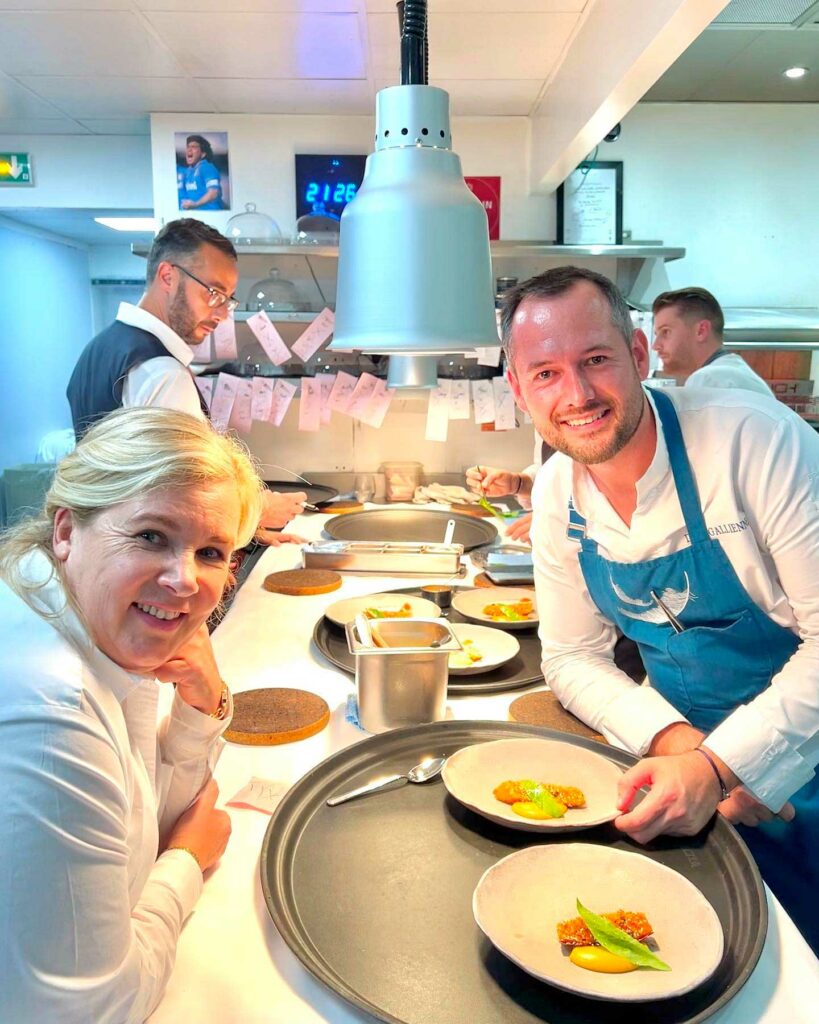
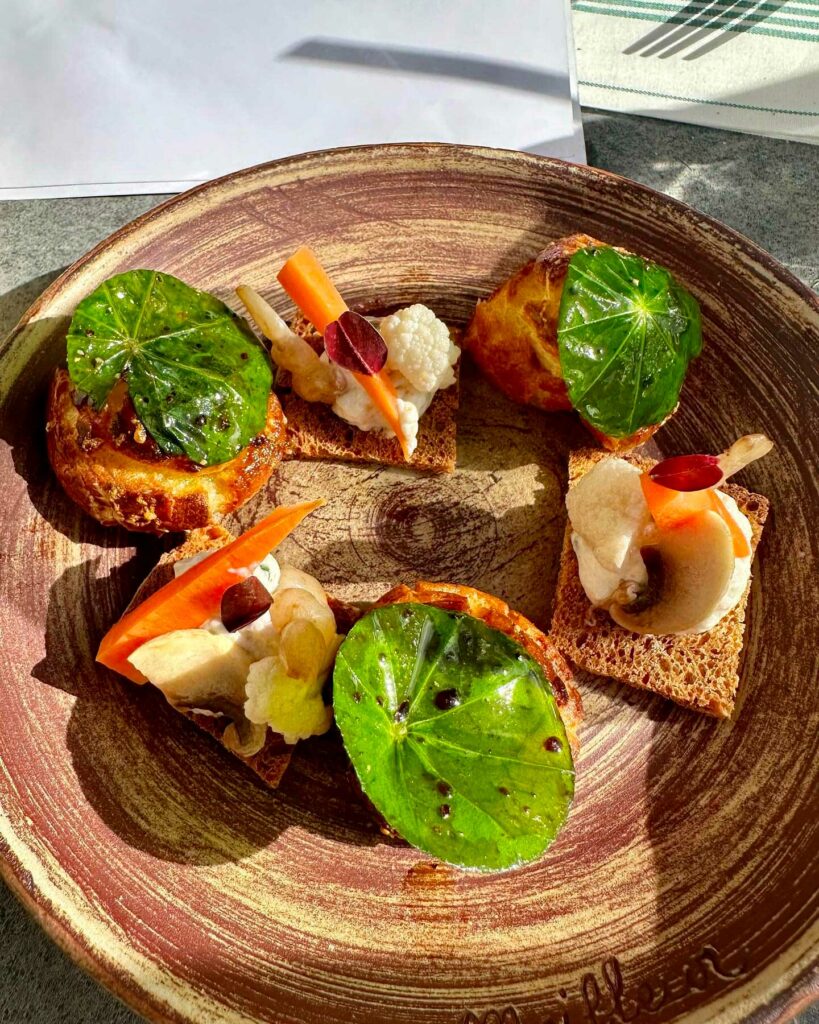
Signature Dishes & Culinary Hallmarks
Among Darroze’s iconic dishes is the seared foie gras served with seasonal fruit relishes—a marriage of richness, acidity, and texture that underscores her commitment to tradition with freshness. Another staple is roasted blue lobster with a light curry emulsion and crunchy vegetables, a cross-cultural gesture that remains anchored in French technique. Her caramelized sweetbreads with truffled potato purée perform a subtle balance between luxurious ingredients and elegant understatement.
In her Paris and London outlets, diners may also sample desserts featuring Armagnac-branded fruit, mushroom-accented courses, and savory desserts that evoke Gascon memory. Each menu evolves with seasons, but the through-line is clear: produce first, technique second, emotional resonance always.
Her Paris restaurant Marsan features three distinct areas—the main dining room, a chef’s table near the kitchen, and a communal sharing table—each offering variation on intimacy and perspective. In London’s Connaught, the design and progression of courses highlight tight structure, but never at the expense of personal expression.
Darroze’s awards include being named “Best Female Chef in the World” in 2015 by The World’s 50 Best, as well as her admission to the Légion d’Honneur in France (Chevalier). Her restaurants maintain Michelin stars: two in Paris (Marsan) and three in London (Connaught), plus one in Provence (Villa La Coste).
A Woman in Haute Cuisine: Leadership & Legacy
In a sphere long dominated by men, Darroze’s ascent is a testament to vision, resilience, and mastery. She is among the few female chefs in France to hold multiple Michelin stars, and she has used her platform to mentor younger women in hospitality. Her dual role as chef and figurehead—leading kitchens while managing branding, expansion, media presence—exemplifies modern leadership in French gastronomy.
Her media presence on Top Chef has made her a household name beyond gastro aficionados, showing that haute cuisine can be accessible, serious yet humane. She often emphasizes work-life balance, creative integrity, and kitchen ethics in interviews. During the “Cuisines Ouvertes” initiative in 2025, she was among the chefs who publicly proposed concrete measures for improving quality of life in restaurant kitchens.
Moreover, Darroze’s commitment to sustainability and local sourcing is not merely rhetorical. She has adapted her procurement strategies in London to reduce ecological footprint, fostered relationships with small producers, and sought ingredient provenance transparency. Her culinary identity continues to remind us that great French cooking emerges from roots, respect for craft, and the courage to evolve.
The Broader Landscape: French Gastronomy in Motion
Darroze’s career also reflects larger currents in French food culture and cuisine. The old divide between haute gastronomie and regional cooking is blurring: chefs increasingly embrace regional specialties, localism, and seasonal produce as central, not secondary, to their vision. The “new French cuisine” includes sensitivity to health, sustainability, global influence, and storytelling.
Cooking schools and cooking classes in France often reference figures like Darroze as models—not only for technique, but for integrating ethics, identity, and creativity. The international appetite for immersive French gastronomy experiences (in Paris, Provence, Bordeaux, Lyon) is partly fed by chefs who bridge tradition and modernity.
Darroze’s influence helps erode stereotypes: that French cooking must only mean heavy sauces or rigid tradition. Instead, her voice shows it can be expressive, adaptive, global-minded. Her willingness to teach—both privately and publicly—helps demystify haute cuisine.
In a country proud of its culinary heritage, she is one of its most compelling storytellers, reminding us that French cuisine is living, evolving, inclusive, and rooted.
Enduring Resonance
Hélène Darroze stands not only as a towering figure of French gastronomy but as a bridge between past and future. Her rootedness in southwestern terroir gives her work emotional ballast; her openness to innovation ensures it remains vital. Through her restaurants in Paris, London, and Provence, and her public engagement, she invites food lovers into her world: one where French cooking is generous, precise, soulful.
Her journey offers inspiration for culinary travelers seeking immersive experiences and for aspiring chefs seeking a path that honors identity without fear of reinvention. In the evolving panorama of French food culture, Darroze confirms that cuisine is not just taste—but memory, place, emotion, and possibility.
Cook in France is your independant source for food in France.